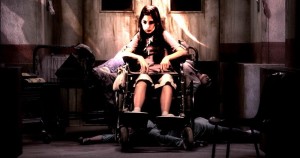
Review: Six of Crows by Leigh Bardugo
Six of Crows portrays disability with incredible nuance; it’s realistic, respectful, and perfectly integrated into the characters and story.

Six of Crows portrays disability with incredible nuance; it’s realistic, respectful, and perfectly integrated into the characters and story.

Hanna is a character with bipolar disorder; she’s not “bipolar disorder, the walking human diagnosis.” I think people who share the disease will find something soothing in seeing someone who both manages and mismanages her illness realistically.

Many characters who may be mentally ill reject treatment out of hand, considering therapy a waste of time and suspecting medication will turn them into a zombie. Why are these narratives so popular? What are the alternatives?

When we talk about disability and sci-fi/fantasy, the first thing many will think of is the magical disability trope. But what does this trope entail and imply? And how can you subvert it?

The writing and characters are wonderful, but if you’re looking for a book about depression, I’d pass on this one.

The most common wheelchair-using character has acquired paraplegia, but why is this particular narrative so prevalent, and at the expense of all others?

The notion of people faking disabilities is not at all new or novel–and, like many, many disability tropes, it’s a harmful one.

What about readers like me, who never see their own illnesses depicted? To see story after story where depression draws a straight line to suicide is, for better or for worse, expressing that depression only functions in one way.